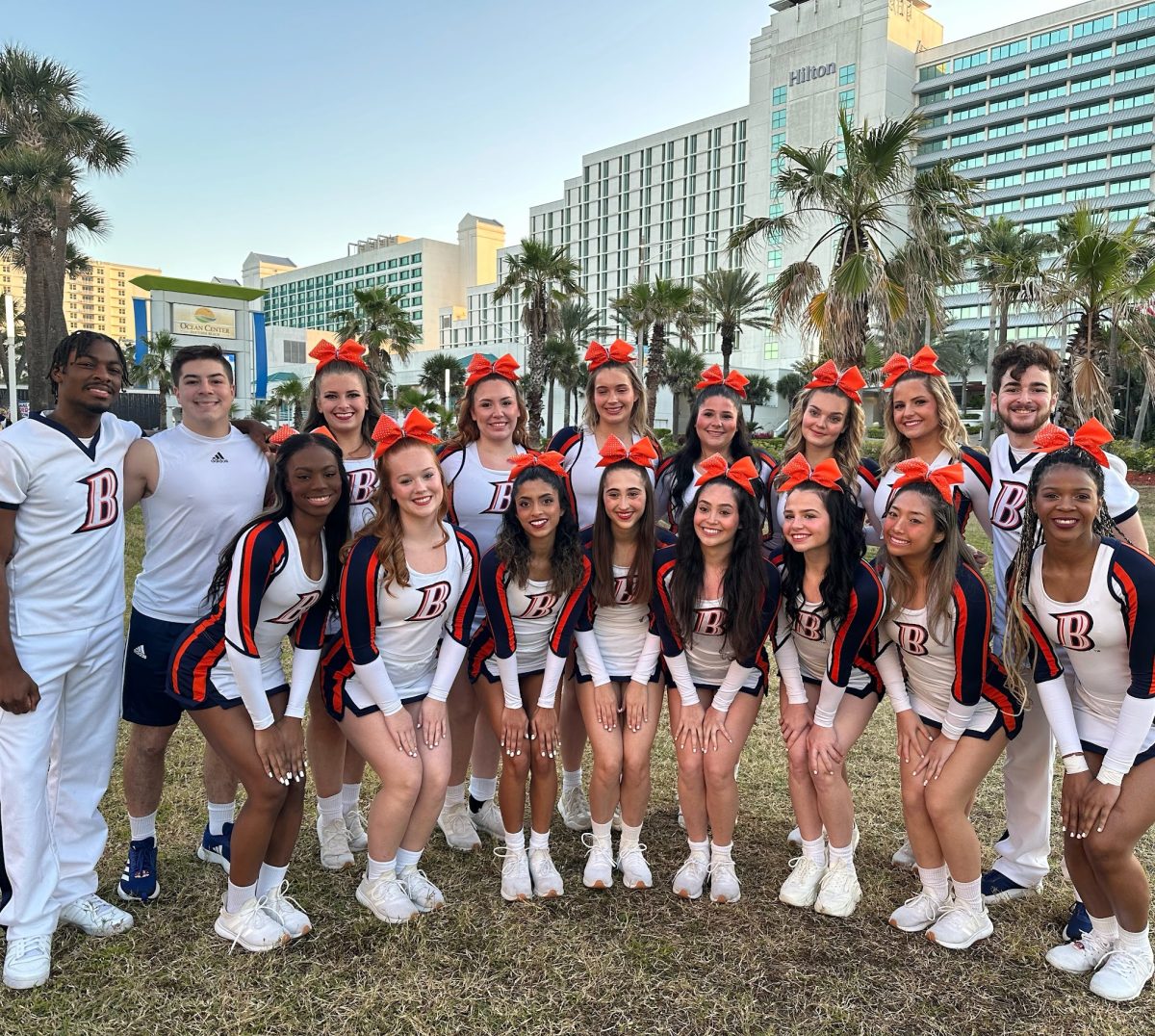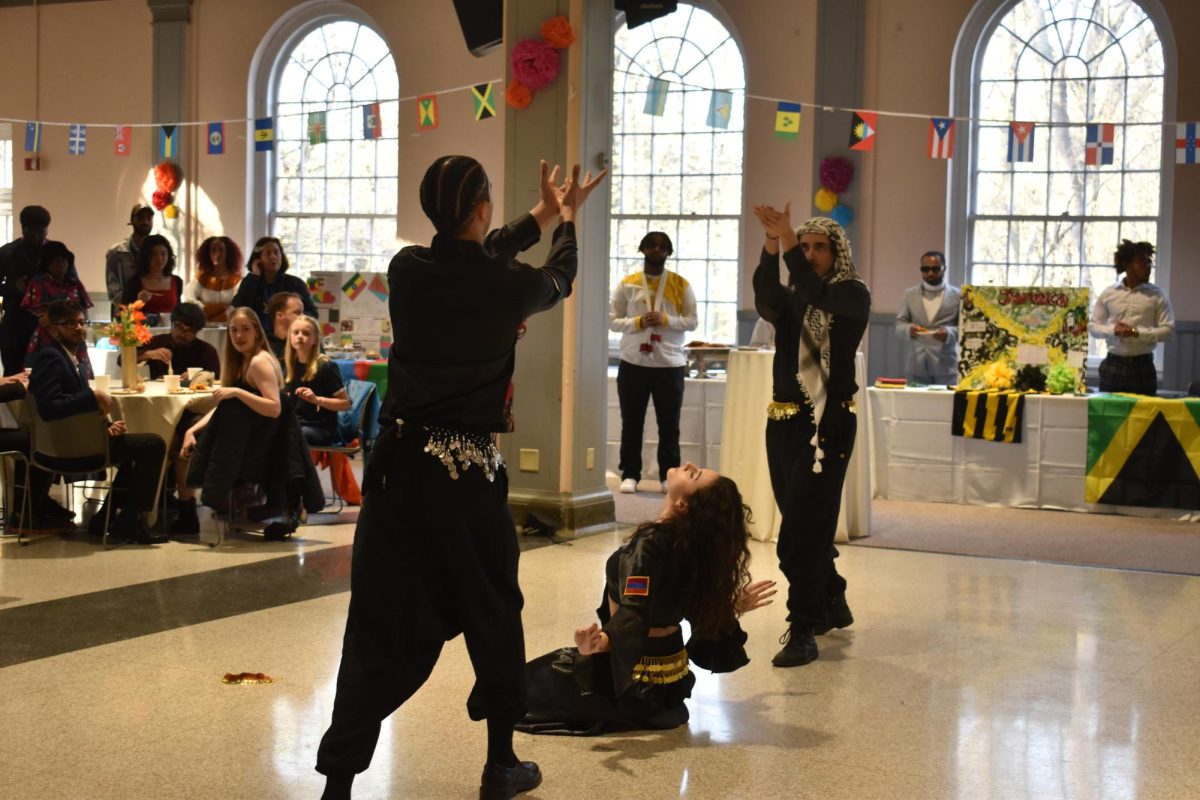Investigative News: In an inherently exclusive Greek system, are all walks of life welcome?
March 9, 2017
The nature of Greek life at any university is inherently exclusive—fraternities and sororities alike have capped membership numbers that allow them to admit only a select number to their organizations each year. The question of inclusivity, however, hinges on a multitude of factors, several of which include gender identity, socioeconomic status, and race.
The University’s Panhellenic Council is the local governing body and representation of all sororities. In reference to factors that sometimes automatically exclude potential members, President of Panhellenic Council Amarachi Ekekwe ’18 said, “Greek life is not where it needs to be in terms of representation from these groups.”
Ekekwe explained that there have been initiatives to bridge the gap between communities of color and Greek communities. Each sorority has been paired with University clubs and organizations that “fall under the umbrella term of ‘diverse’ […] with the intent that these organizations would come together and ultimately plan an event that is either open to the campus or to the members of their clubs/organizations,” Ekekwe said.
“Studies show that we tend to prefer people who look and think like us, so when that selection process is based on how greek organizations perceive potential members, it is automatically going to be biased towards the individuals that are most similar to the people already in that greek organization,” Laura Poulton ’18, a member the University’s Gender & Sexuality Alliance (GSA) and the affinity leader for Fran’s House, said. “So fraternities and sororities that are currently mostly white, straight, cis, upper-class, and conventionally attractive people will likely continue to be mostly white, straight, cis, upper-class, and conventionally attractive people.”
Another expansion of diversity in Greek Life is the chapter of Mu Sigma Upsilon on campus. Mu Sigma Upsilon is a multicultural Greek organization that established a chapter on campus in 2012. The organization was the first form of a multicultural organization identified in the Greek system and was officially founded in 1981 at Rutgers University.
Because Mu Sigma Upsilon is a part of the National Multicultural Greek Council and not a Panhellenic sorority, “it’s hard for them to find their place in Panhel, due to the difference in our rules from nationals,” Ekekwe said. Their impact on campus is limited due to their small number of members.
On a national level, several fraternities and sororities, which have traditionally based their membership on gender, have extended their terms of inclusivity to differing gender identification.
Winter recruitment at Northwestern University sparked a discussion about the regulations, existent or nonexistent, regarding gender identity in the Greek system.
“The case is unusual because the student is a transgender man, born with a female body but identifying as male, and already beginning to make that transition,” The Chicago Tribune said. “18-year-old Adam Davies said he was drawn to the tenets of Greek life—philanthropy, bonding and leadership—but that with his changing body he might not feel comfortable living in a fraternity.”
Davies did not receive any bids. Membership decisions are kept private so it is unclear if this lack of inclusion was due to Davies’ gender identity.
The National President of Alpha Chi Omega (AXO) Angela Costley Harris announced on Feb. 17 that the organization will now accept as members “all who live and identify as women, regardless of their gender assigned at birth,” Harris said.
“The Alpha Chi Omega decision is a step forward in terms of inclusion,” Bill McCoy, director of the Office of LGBTQ Resources, said. “Several other organizations have policies that rely on one’s transition being codified legally. However, the policies governing legal document changes can vary quite significantly depending on where a student is a legal resident—so it creates a system that benefits, or excludes, individuals based on where they grew up,” McCoy said.
Hannah Rosen ’18, the University’s AXO chapter president, said she was extremely excited about Harris’ announcement.
“We see this as a huge and important step forward in terms of the Greek system catching up with what’s going on in the world today. Our chapter is so excited to invite all potential new members into our sorority, and we’re proud that this now can extend to anyone identifying as a woman,” Rosen said. “Our motto is ‘Real, Strong, Women’ therefore being inclusive to all real strong women is so important, now more than ever.”
“The AXO announcement is definitely a step towards inclusivity. And while it is amazing to hear that a national organization is finally trying to be inclusive of transgender women, it is only one step. The harder part is changing biases within local chapters,” Poulton said.
Similar to AXO’s efforts of inclusion, the home page of Delta Gamma’s website has an anti-discrimination message.
“Delta Gamma Fraternity does not discriminate in its membership selection on the basis of race, religious affiliation, color, creed, national origin, sexual orientation, marital status or physical disability. Membership is open to women and transgender persons who identify themselves as women,” the message said.
Another common criticism of the Greek system is expensive chapter dues. The Assistant Director of Fraternity & Sorority Affairs Ashley Rastetter explained that there are numerous fees associated with being a member of a sorority, and according the University’s website on Greek Life, dues range from $500-$700. Fraternity costs are not listed on the University’s website.
“One fee that all members pay is a national organization fee. This fee is determined by the national organization, for all members associated. Another fee is determined per chapter/per campus. These fees are determined differently by each organization on campus, not all determine them the same way,” Rastetter said.
Ekekwe acknowledged that “dues can definitely be a deterrent for many people who are interested in joining Greek life, but there are many ways to help offset or minimize the cost.” Monthly payment plans and chapter scholarships through national offices are ways to alleviate monetary pressures.
“More often than not, if someone is not able to pay their dues the chapter will eat the cost. An inability to pay has never stopped TKE (or any chapter to my knowledge) from extending an invitation of membership to a potential member,” Jack Fitzpatrick ’17, former president of the University’s Interfraternity Conference and member of Tau Kappa Epsilon (TKE), said.
Fitzpatrick was confident in the University’s recruitment process.
“I strongly encourage everyone—regardless of background—to go through recruitment. There is a home for everyone in Greek Life,” Fitzpatrick said.
Ekekwe believes that the Greek system does not fully extend itself in all aspect of diversity and inclusion, but fosters diversity of thought and experience.
“I believe that the people in Greek life have differing experiences and come from different walks of life,” Ekekwe said.


























